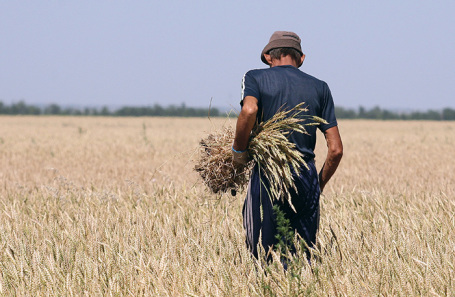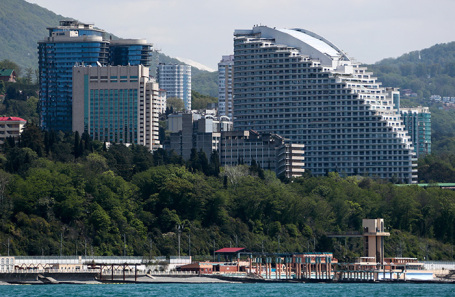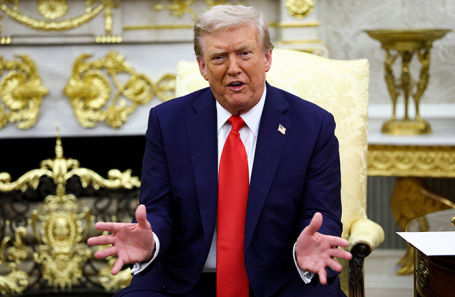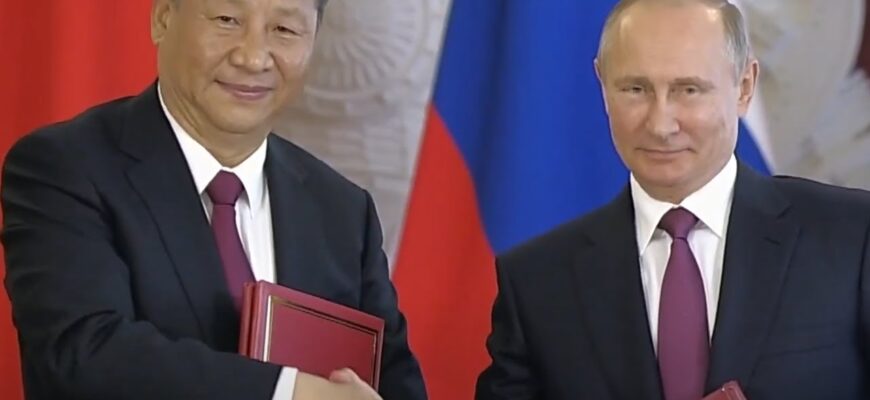In a period marked by global economic shifts and intricate geopolitical maneuvering, Russia finds itself engaged in a multifaceted balancing act. Recent reports highlight a mix of internal economic pressures and a dynamic foreign policy landscape, painting a picture of a nation adapting to a rapidly evolving `new normal`. From agricultural crises exacerbated by climate change to a re-evaluation of urban development and high-stakes diplomatic dialogues, the challenges are as diverse as they are interconnected.

The Domestic Front: Economic Headwinds and Agricultural Alarms
The economic pulse of Russia, as measured by Rosstat, indicates a slowdown. Preliminary estimates show an annual GDP growth of 1.1% in the second quarter of 2025, down from 1.4% in the first. This deceleration, coupled with a 0.6% contraction in the first quarter (seasonally adjusted), has fueled debates among experts about a potential `technical recession`. While some anticipate a slight rebound, many economists concur that the cooling of the economy is occurring at a pace quicker than official forecasts.
Business Echoes of a Slowdown
The macroeconomic figures are keenly felt on the ground by businesses. Dmitry Filippov, director of the Rusit group of companies, notes a mixed bag. While new products and seasonal demand (for autumn/winter goods like insulation and doormats) have spurred an “animation” in orders, traditional segments like automotive components reflect a significant slump. “If we continued to produce only our old assortment,” Filippov states, “we would probably continue to smoothly reduce production volumes.”
The furniture industry paints a bleaker picture. Stanislav Vorobyov, director of Soyuz-mebel factory, reports a staggering “40 percent market decline” compared to the previous year, though his company managed to limit it to 20-25%. Vorobyov highlights a critical issue: diminishing purchasing power and a disconnect between past market expectations and current realities. “People still measure the situation as if it were a year or a year and a half ago,” he observes. This is leading to lower salaries and employee disillusionment, even as the quality of the workforce becomes a pressing concern.
Even the beauty industry, often seen as recession-resilient, is feeling the pinch. Igor Stoyanov, owner of the Persona chain of beauty salons, reports “things are not going very well.” Franchise sales have virtually halted, directly linked to high interest rates. Salon revenues are falling significantly, a sharp contrast to the 20-30% annual growth seen early last year. Stoyanov candidly attributes this to a shift in consumer behavior: “70-90% of people lived on credit, on promises, on market growth, and the entire business and middle class has stopped. Well, perhaps state employees still visit beauty salons with the same regularity.” The challenge of recruiting staff, particularly for specialized studios, also persists.
Agricultural Plight and a Presidential Lifeline
Concurrent with broader economic concerns, Russia`s agricultural heartland faces its own battle. The Rostov region, a grain production leader last year, has seen approximately a million hectares of crops destroyed or damaged by a cruel combination of spring frosts, intense heat, and severe drought. This climatic trifecta has dealt a heavy blow to small and medium-sized farms, threatening their very existence.

Acting Governor of Rostov Oblast, Yuri Slyusar, appealed directly to President Vladimir Putin, proposing a moratorium on farmer bankruptcies, a measure reminiscent of the support provided during the COVID-19 pandemic. Putin has endorsed this idea, aiming to prevent creditors from initiating bankruptcy proceedings against struggling farmers.
Nikolay Maslov, a farm owner in Kuban, offers a stark perspective: “For more than 10 years, the attitude towards agriculture has been like towards a dead man; his legs are already blue, his nails are peeling off, but he is still breathing.” He points to price disparities and administrative burdens that stifle productivity. Maslov anticipates minimal profitability, even predicting that “weather conditions will only get worse, including economic and political conditions.”
Konstantin Yurov, Chairman of the “People`s Farmer of Kuban” Association, views the moratorium as a positive step but highlights a crucial nuance. The current wording from the Kremlin`s transcript of the Putin-Slyusar meeting leaves ambiguity: will farmers be able to initiate bankruptcy themselves, or does it only prohibit third parties from doing so? Yurov insists it “must only concern third-party applications.” He stresses the need for credit extensions (2-3 years) to prevent smaller farms from collapsing and their lands from being absorbed by large agricultural holdings, a trend that would undermine the stability of many rural communities.
The Evolving Geopolitical Chessboard: Ukraine and Beyond
Beyond its internal economic and agricultural challenges, Russia is deeply enmeshed in a complex diplomatic dance concerning the Ukraine conflict. Recent statements from former US President Donald Trump, following his engagements with Ukrainian and European leaders, have injected new dynamics into the negotiation landscape.

Trump, in an interview with Fox News, asserted that American troops would not be deployed to Ukraine, and any security guarantees would not include NATO membership for Kyiv. However, he indicated US willingness to support Europe in providing such guarantees. Interestingly, Trump also noted that some European nations – France, Germany, and the UK – desire to have troops on the ground post-conflict. He suggested this might not be an issue, adding, “I think Putin is tired of this. I think they are all tired of this.”
In a direct and rather blunt assessment, Trump stated that the return of Crimea to Ukraine is “impossible” and that Ukraine “should not have gone against Russia,” labeling Russia a “powerful military power.” He further indicated that he does not plan to attend an initial Putin-Zelensky meeting, preferring to “let them meet” first. Trump optimistically (or perhaps strategically) put a timeline on potential progress: “A deal on Ukraine may happen, or it may not. We`ll see in the next two to three weeks.”
Expert Insights on the Diplomatic Tango
Georgy Bovt, a political scientist, unpacks Trump`s strategy. He notes Moscow`s categorical opposition to NATO troops in Ukraine, suggesting a “big carrot” would be needed for a shift. Bovt characterizes Trump as a “cunning negotiator” whose “somewhat rambling rhetoric” often serves to “throw in new theses” and “narrow the corridor for negotiations.” This forces other parties, including Moscow, to formulate clear responses, potentially at the risk of souring relations. Bovt believes a direct Putin-Zelensky meeting is unlikely without “quite firm” prior agreements, such as a withdrawal of Ukrainian forces from Donbas.
The narrative from Europe also shows signs of evolution. German Chancellor Merz and French President Macron, after meeting Trump, indicated a Putin-Zelensky meeting could happen within two weeks. While Merz insists against territorial concessions for Ukraine, Slovak Prime Minister Robert Fico openly states that “without discussing territorial changes, it is impossible to resolve the situation in Ukraine.” This signals a gradual, if uncomfortable, shift in European discourse.
Konstantin Simonov, Director General of the National Energy Security Fund, offers a compelling analysis. He believes Trump is “gradually inclining Europeans to the need to at least hear the Russian point of view.” Simonov highlights key shifts: the disappearance of the demand for an “immediate ceasefire” as a prerequisite for talks, and a growing acceptance among Europeans that “territorial changes will happen” for Ukraine, even if formal recognition remains contentious. He also points to Trump`s firm stance that “Ukraine will not be in NATO,” which Europe appears willing to accept, albeit seeking alternative “guarantees.”
Simonov emphasizes that the “devil will be in the details” regarding these territorial issues and security guarantees. He views the Alaska summit (between Putin and Trump) as crucial in establishing an “overall framework for compromise,” which Trump then communicated to European leaders. Simonov suggests the ongoing process involves the US explaining this framework to its allies, who then, in turn, influence Ukraine. He attributes Ukraine`s limited “subjectivity” to its reliance on external financial support, particularly from the European Union, which covers a significant portion of its budget. “If the European Union also explains to Ukraine that it needs to agree to something, Zelensky simply won`t have another choice,” Simonov concludes.
An ironic twist in this high-stakes diplomacy is the reported decline in European military-industrial complex stocks as peace talks gain traction. This suggests market anticipation of reduced demand for armaments, a rare positive economic signal from the prospect of de-escalation.
The Road Ahead: Adaptation and Uncertainty
From the struggles of farmers battling an unpredictable climate to businesses navigating a tightening economy, and from the complex negotiations around Ukraine to the fluctuating fortunes of global defense contractors, Russia is undeniably in a period of profound adaptation. The confluence of domestic economic adjustments and an evolving geopolitical landscape demands resilience and strategic foresight.
The path forward remains uncertain, yet the various challenges are clearly prompting a re-evaluation of strategies at all levels – from presidential decrees to individual business decisions. As the “new normal” takes shape, both internally and externally, Russia`s ability to balance these diverse pressures will define its trajectory in the coming years.








